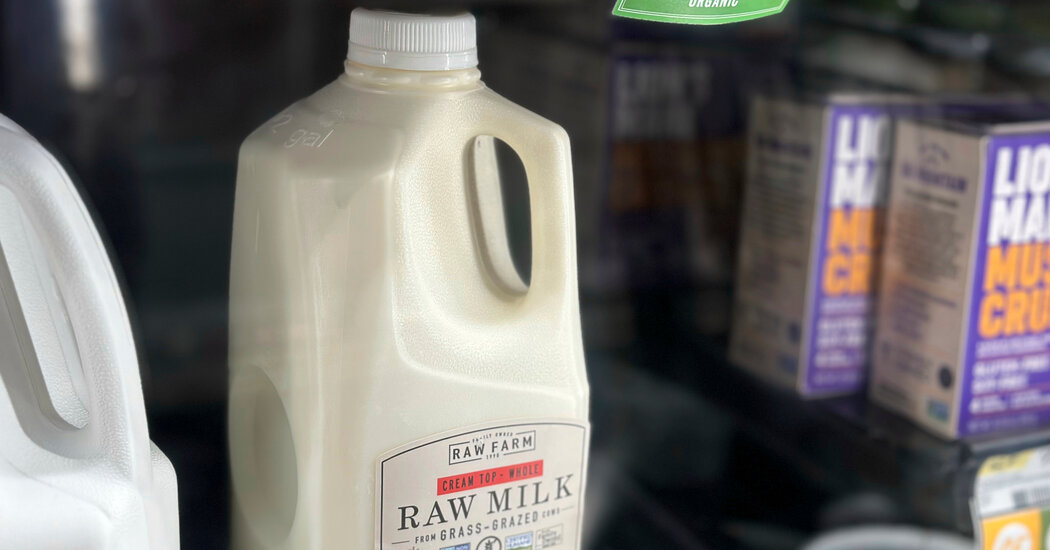At least 171 people were sickened in an outbreak linked to Raw Farm milk. Experts say the number could be far higher.
When Jackie’s 9-year-old son came down with a low-grade fever in October, she chalked it up to a typical back-to-school bug. But his illness worsened over the next couple of days. “His skin tone looked gray,” she said, and near-constant diarrhea left him unable to sleep and too weak to stand.
After two emergency room visits and a three-day hospitalization, he finally began to recover, said Jackie, who lives in Southern California and requested to be identified only by her first name to protect her family’s privacy. A stool culture revealed that he had been infected with salmonella.
A public health investigator asked Jackie to recount everything her son had consumed during the two weeks before his illness, and to detail the products in her fridge. A week later, they identified the source of his illness: unpasteurized milk from Raw Farm, a dairy producer in Fresno, Calif.
Jackie’s son was one of 171 people sickened and 22 hospitalized from September 2023 to March 2024 in a salmonella outbreak linked to unpasteurized milk from Raw Farm, according to the California Department of Public Health. The size of the outbreak — the largest recorded outbreak connected to unpasteurized milk in more than two decades — only came to light after a preliminary count of 165 cases was released last week. Before that, the latest public notifications of the size of the outbreak were on Oct. 25, 2023, and listed 19 cases in San Diego County and Orange County.
“This outbreak could be many times larger than the 171 cases reported,” said Michael Osterholm, the director of the Center for Infectious Disease Research and Policy at the University of Minnesota. People don’t always see a doctor when they are ill, and if they do, they may not be tested for food-borne illnesses or cooperate with public health investigations, he said.
Nearly 40 percent of those infected during the outbreak were younger than 5, California health officials said, and cases were reported in California, Washington State, New Mexico, Pennsylvania and Texas. Sales of unpasteurized milk, which has not been heated to a temperature that would kill potentially harmful bacteria, are illegal or heavily restricted in nearly two dozen states. But retail sales are legal in California and a growing number of states.
